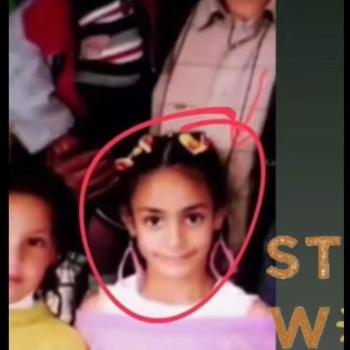The Torchwood episode “Sleeper” focuses on an idea that was much more popular during the Cold War: the idea that there could be sleeper agents among us who appear to be like us, even a loving spouse, but who can be switched on by a command from our enemy and immediately become a ruthless, murdering menace apparently unhindered by our own society’s concern for love, justice, or the value of human life.
Thankfully, the episode doesn’t merely revive this plot idea but also works to undermine it. [SPOILER ALERT if you haven’t seen the episode then don’t read on if you don’t want spoilers]
As the Torchwood team increasingly becomes convinced that a woman who raised their suspicions, Beth, is an alien, eventually they manage to activate her, revealing an implant in her arm and that she is a sleeper agent from an alien race the identity of which is something of a mystery, but which infiltrates and, when it has collected enough information, takes over, using our own weaknesses and weapons against us.
 When Beth reverts to her human cover identity, she is troubled. From that point on, the show explores the question of what makes us human. Gwen suggests that if you feel human, then you are. And when she asks whether the love she felt for her husband Mike was real, Gwen assures her that it was.
When Beth reverts to her human cover identity, she is troubled. From that point on, the show explores the question of what makes us human. Gwen suggests that if you feel human, then you are. And when she asks whether the love she felt for her husband Mike was real, Gwen assures her that it was.
It turns out that, even though she cannot completely override or control her alien programming, Beth is capable of doing so to a certain extent. And in the end, one might say that she proved her humaneness, if not her humanness, by choosing to die while still human rather than allow herself to continue to serve the aims of entities who do not value human life.
What makes us human? This story explores that question, as well as the possibility of redemption – although it also seems to envisage that it is possible for someone to be “programmed” for evil to such an extent that death rather than redemption is the best ending one can hope for.
It is perhaps worth mentioning that many of the same issues came up on last week’s episodes of Fringe and Chuck. On Fringe, it was the question of erasing memories and rewriting history, and whether relationships that existed before the change can somehow be revived. On Chuck, it was the rewriting of a brain and the disappearance of knowledge (Indiana Jones and Luke Skywalker!) that was symptomatic of a changing personality.
What makes us human? Perhaps it is our very existence at the intersection of programming and memory on the one hand, and our capacity to reinvent ourselves on the other. But until we encounter other sentient life in the universe, we won’t know if these things make us distinctively human.












